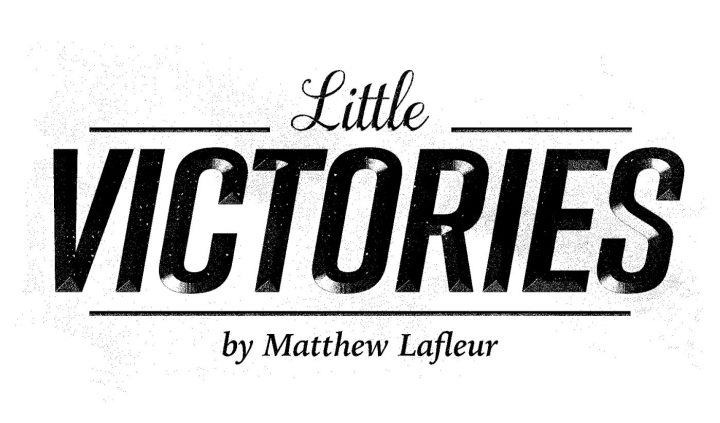Daydreaming and Other Ways of Coping
Written by |

“Don’t hold a glass over the flame/Don’t let your heart grow cold/I will call you by name/I will share your road.” –Mumford & Sons.
“Matt?” my professor repeated for who knows how many times, interrupting the imaginary concert in my head.
I realized I’d been lost in thought, and was suddenly brought back to the present — an evening grad school class at Louisiana State University. The low, consistent hum of the air conditioner was the gentle heartbeat of this large classroom in Peabody Hall. All seven of my classmates in our small graduate program stared at me. They weren’t judging, but were surprised that I was daydreaming so soon after class had begun.
“Sorry,” I said honestly. I really had no excuse. I was in one of the foundational (and coolest) courses of my counseling grad school program, Theories, in which we touched on most of the separate philosophies and modes of counseling, like person-centered (useful, sometimes), cognitive behavioral (I’m a big fan), systems (super interesting), existential (my favorite), and many others.
Today we were focused on a very well-known counseling theory called psychoanalysis, founded by Sigmund Freud.
Freud’s work was so groundbreaking that he is still ubiquitous in the study of psychology and counseling today, over 70 years after his death. My class focused on Freud’s theory of dreams.
According to Freud, dreams are not just random thoughts and memories slowly sorted into a person’s memory, but symbolic keys that can unlock someone’s personality. His job as a therapist, according to his counseling theory, was the interpretation of clients’ dreams. Most of those dreams had to do with the Oedipus Complex, which is creepy. I was taught not to subscribe to the theory of dreams absolutely, but to use knowledge of this theory as one tool in my toolbox of counseling theories.
While my professor explained this to the class, I got lost in imagining Oedipus and Greek mythology in general, one of my favorite topics.
Using might, magic, and a little bit of dumb luck, I slew the monster, rescued the villagers, and impressed the gods and goddesses of Olympus.
I doubt there are any symbols in my many daydreams to unlock my personality. Probably not in my dreams at night either; they either revolve around something I’ve recently thought about or present me as an important hero with special abilities who will save the day.
Analyze that, Freud.
I think coping mechanisms are an essential part of my life dealing with the effects of FA. Any ways of escaping the hardship of physical disabilities, or any other shortcomings, are not only beneficial but necessary.
Going to the movies (I recommend “Eighth Grade“), bingeing on a great TV show (I recommend “Westworld” and, of course, “Scrubs“), reading a good novel (“The Hour I First Believed“ is a personal favorite), or getting together with my friends is invaluable, but daydreaming is my favorite coping mechanism. It is an always available ticket to anywhere.
Escapism is not the opposite of living an authentic life. Every so often, a diversion, a vacation from the hardships we face, is necessary.
When I was young, I would daydream about learning how to professionally counsel people because I wanted to help and comfort others above all else. And I’d dream about writing a column that would hopefully spread some entertainment and maybe some encouragement. Dreaming is not truth, nor is it an interpretation of your personality (in my opinion — apologies to Freud); it’s a fun mode of escaping, at least for a little while.
My advice for when you feel run-down by life and mounting problems, is this: curl up with a good book, or watch a good movie, or listen to a great song, or even go to sleep. The world will still be here while you’re gone. Don’t worry. But wake up after a while. We need you.
I like escapism. So you can find me, even at the most entertaining event, drifting off, out of the moment. I won’t be there for long, but give me a second to enjoy it there. I can still walk in my dreams. Sometimes, I can even fly.
***
Friedreich’s Ataxia News is strictly a news and information website about the disease. It does not provide medical advice, diagnosis or treatment. This content is not intended to be a substitute for professional medical advice, diagnosis, or treatment. Always seek the advice of your physician or another qualified health provider with any questions you may have regarding a medical condition. Never disregard professional medical advice or delay in seeking it because of something you have read on this website.




Leave a comment
Fill in the required fields to post. Your email address will not be published.